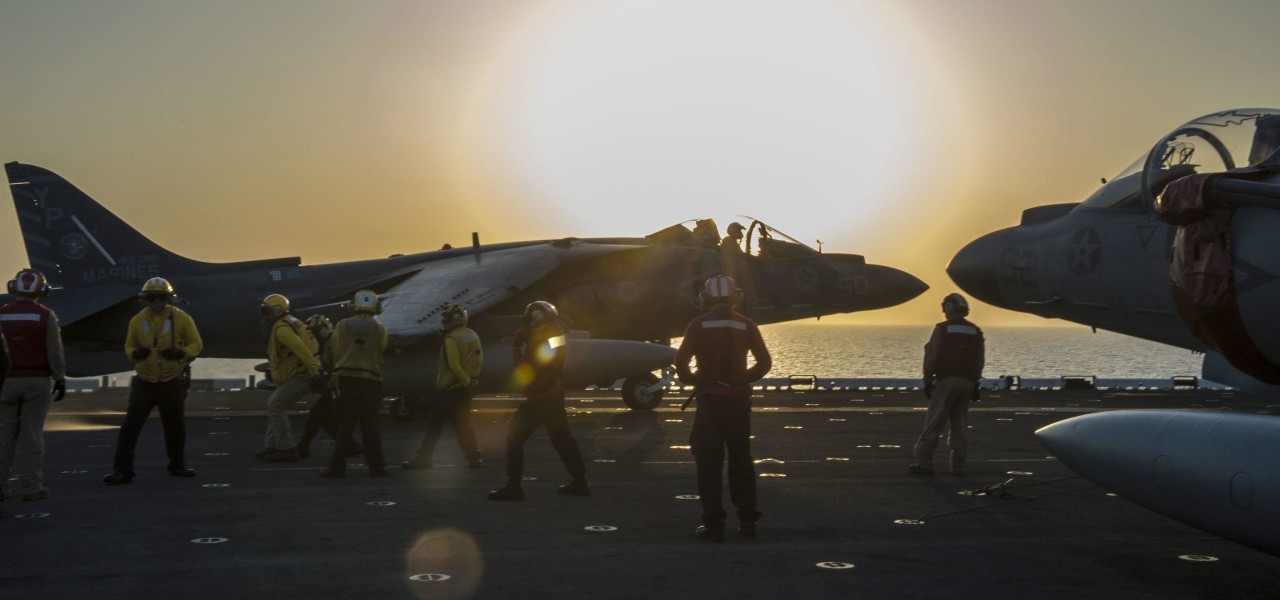 U.S. Navy via EPA
U.S. Navy via EPA
Airstrikes Raise the Stakes for Obama's U.N. Pitch
This
week’s gathering at the United Nations in New York was already slated
to be a big event in President Obama’s efforts to rally the world
against ISIS. And now it’s even bigger. Beginning at approximately 8:30
pm ET last night, the United States -- with help from five Arab nations
-- launched airstrikes against ISIS targets in Syria, escalating the
military campaign against ISIS for the first time beyond Iraq. Those
airstrikes change the tone and the focus at the U.N. meeting. How do
Russia and the Security Council react, especially since Syria is a
Russian ally? What about other nations who had been questioning the
United States’ resolve? Does the U.S. get any additional participation
from other nations? Do already-supportive nations become a little more
supportive? Bottom line: The timing of this new military campaign inside
Syria couldn’t be more striking. NBC’s Kristen Welker reports that
President Obama will make a statement from the White House at 10:00 am
ET before he leaves for the U.N. meeting in New York. The rest of the
president’s schedule: At 12:50 pm ET, he speaks at the U.N.’s climate
summit; at 2:00 pm, he gives a speech at the Clinton Global Initiative;
at 5:15 pm ET, he attends an event for the Democratic Senatorial
Campaign Committee (does he keep that event given the airstrikes?); and
at 9:00 pm ET, he and the first lady attend a reception for the visiting
world leaders.
The five Arab allies that assisted last night
Per NBC’s Andrea
Mitchell, the five Arab countries that assisted last night’s airstrikes
against ISIS were Saudi Arabia, the United Arab Emirates, Bahrain,
Jordan and Qatar. While we don’t know the degree to these nations’
involvement, that their names are officially attached to the effort is a
short-term victory for the Obama White House, which had made enlisting
Arab nations a priority in the effort against ISIS. As the Atlantic’s Jeffery Goldberg mused,
“So the president who can’t build coalitions built a coalition, I
guess.” Don’t lose sight of the fact that the only allies joining the
United States last night were Arab countries. That was done on purpose.
Syria becomes seventh country in which the U.S. has launched airstrikes or military operations in the Obama Era
Here is something to
chew on: By our count, President Obama has now launched airstrikes and
military operations in seven countries during his six years in office --
Afghanistan, Iraq, Libya, Pakistan, Yemen, Somalia, and Syria. Six of
the seven have been (mostly) in the name of counter-terrorism. The one
exception here: Libya, which remains the president’s biggest regret (due
to the power vacuum Khadaffy’s ouster created).
Syria was “notified” of the airstrikes
By the way, NBC’s
Abigail Williams passes along this statement from State Department
spokeswoman Jen Psaki: “The Syrian regime was notified that the
coalition was going to take direct action ISIL inside Syria. We did not
seek the regime's permission, we didn't coordinate our actions with the
Syrian government, and Secretary Kerry did not send a letter to the
Syrian regime.”
It wasn’t just ISIS that was targeted in Syria
In a statement, the
Pentagon revealed that the United States also took action against Al
Qaeda veterans -- called the Khorasan Group -- in its military campaign
in Syria last night. The Khorasan Group is considered by many to be a
bigger short-term threat to the U.S. homeland than ISIS is. From the
Pentagon’s statement: “Separately, the United States has also taken
action to disrupt the imminent attack plotting against the United States
and Western interests conducted by a network of seasoned al-Qa'ida
veterans - sometimes referred to as the Khorasan Group - who have
established a safe haven in Syria to develop external attacks, construct
and test improvised explosive devices and recruit Westerners to conduct
operations. These strikes were undertaken only by U.S. assets. In
total, U.S. Central Command conducted eight strikes against Khorasan
Group targets west of Aleppo to include training camps, an explosives
and munitions production facility, a communication building and command
and control facilities.” Also, here’s one other event for today’s
schedule: Director of Operations Lt. Gen. William Mayville will conduct a
briefing today on operations in Syria at 11:00 am, per NBC’s Courtney
Kube.
Midterms take a backseat
Today, we are officially
six weeks out until Election Day, and the midterms, well, seem more
like a backburner issue than even before, especially since the military
campaign against ISIS began. We’re political reporters and junkies, so
of course we believe covering all of the midterm races is a big deal.
And we love the different contests and politicians running in them. But
more likely than not, the midterms will take a backseat to other world
events. And THAT could have an impact on the races and voters’ moods six
weeks from now.
First Read’s Race of the Day: IL-GOV: Quinn vs. Rauner
This contest is probably
the GOP’s top gubernatorial pick-up opportunity, given Democratic Gov.
Pat Quinn’s low approval ratings and the state’s
higher-than-national-average unemployment rate (though it’s dropped significantly since last year).
The Republican nominee is wealthy political novice Bruce Rauner, whom
Democrats have tried to portray as another Mitt Romney (Rauner admitted belonging to a $100,000-plus wine club). A recent Chicago Tribune poll
found Quinn leading Rauner by double digits, 48%-37%, but it also
showed Quinn with a 36% job-approval rating, which is DANGEROUS
territory for an incumbent governor.
No comments:
Post a Comment